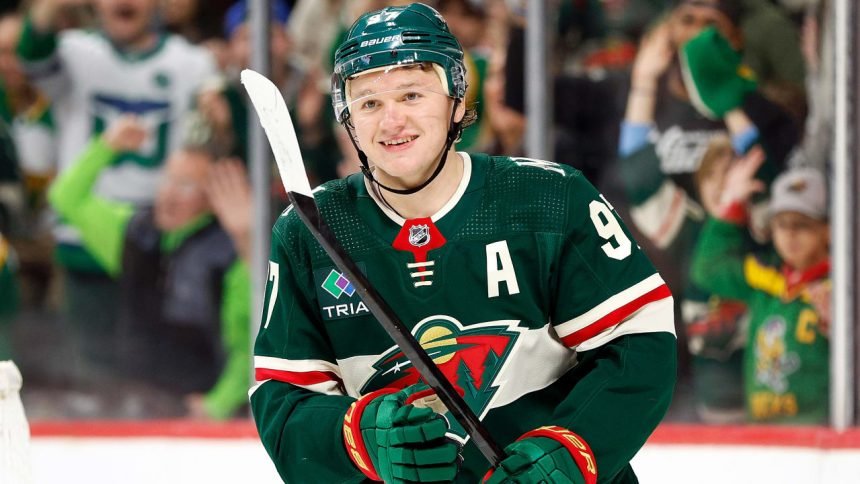The numbers are staggering: Eight years, $136 million, a $17 million average annual value.
The Minnesota Wild signed star forward Kirill Kaprizov on Tuesday, a deal that begins with the 2026-27 season. It was a major statement from the Wild, about where they see their team going, the value the 28-year-old brings and his place in the hockey landscape.
Asked if it was the most important deal in Wild history, general manager Bill Guerin said, “Yes, very much so.”
“Listen,” he added, “all of our players are important. All the contracts are important. Hockey is very much a team sport. We have 20 guys out there battling every night. You can’t play the whole game, so they need each other and they’re all important.
“This one is, it’s big because Kirill is our franchise player and keeping him was extremely important. There’s a lot more to it than maybe some of the other ones, but it doesn’t mean they’re not important. But, yeah, this was a big one. This is the biggest one in franchise history, for sure.”
But this contract is ultimately not just about Kaprizov and the Wild. It’s about where the game is going, the financial stability in a League when the salary cap is about to be on the rise, at $95.5 million this season, $104 million in 2026-27 and $113.5 million in 2027-28, and about what it portends for the upcoming free agent class, which includes some seriously big names.
Connor McDavid (Edmonton Oilers) stands alone as the best player in the NHL, having won the Hart Trophy voted as the League’s MVP in three of his 10 seasons, playing the past two Stanley Cup Finals and winning the Conn Smythe Trophy in 2024 despite not winning the Cup. He is set to become a free agent at the end of this season.
He’s not the only one, either.
Jack Eichel (Vegas Golden Knights), Artemi Panarin (New York Rangers), Kyle Connor (Winnipeg Jets) and Adrian Kempe (Los Angeles Kings) are all high-end players whose contracts are about to run out.
“These are big deals that are sitting there,” ESPN analyst Ray Ferraro said Tuesday.
And the market has now been established.
What may be especially notable — and instructive — for the players who have contracts expiring in the near future is the way the Wild and Kaprizov got to this point.
According to multiple reports, Kaprizov previously turned down an eight-year, $128 million contract with the Wild.
He believed he could get more. He did.
“I think what’s different this season is we’re truly entering this player empowerment era,” said ESPN NHL Insider Emily Kaplan. “Part of it’s due to shifting attitudes, culturally, part of it is just the fact that the salary cap is seeing a significant increase. … But because of that, we have guys that are saying I know what I’m worth and I know where I want to go and I’m not afraid to stand my ground and I think that aligns with a lot of the other sports.
“We saw Kaprizov, he turned down what was the biggest contract in NHL history because he’s like, no, I’m worth more than that, and then he got it.”











